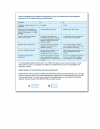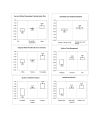Features of asthma management: quantifying the patient perspective
- PMID: 18062804
- PMCID: PMC2231386
- DOI: 10.1186/1471-2466-7-16
Features of asthma management: quantifying the patient perspective
Abstract
Background: In the management of asthma, features of care important to patients may not be fully appreciated. This study quantifies the importance of different features of asthma management from the patient perspective. This may assist in the development of personalised management strategies.
Methods: We used the technique of discrete choice experiment (DCE). Patients over 18 years of age with asthma, prescribed and taking medicine at step 3 of the UK guidelines were recruited from 15 general (family) practices in three areas of the UK. 147 evaluable questionnaires were returned from a total of 348 sent out. The outcome measures were the relative importance to patients of features of asthma management and the impact of changes in asthma management, as measured by utility shift between the features tested.
Results: The largest shift in mean utility values was recorded in "number of inhalers" and "use of inhaled steroid". Use of a personal asthma action plan was ranked next highest.
Conclusion: This study suggests that adults with moderate or severe asthma would trade some improvements in symptom relief in favour of, for example, simpler treatment regimens that use as few inhalers as possible and a lower dose of inhaled steroid.
Figures
References
-
- Lorig KR, Sobel DS, Stewart AL, Brown BW, Jr, Bandura A, Ritter P, Gonzalez VM, Laurent DD, Holman HR. Evidence suggesting that a chronic disease self-management program can improve health status while reducing hospitalization. A randomized trial. Med Care. 1999;37:5–14. doi: 10.1097/00005650-199901000-00003. - DOI - PubMed
-
- van Es SM, le Coq EM, Brouwer AI, Mesters I, Nagelkerke AF, Colland VT. Adherence-related behavior in adolescents with asthma: results from focus group interviews. J Asthma. 1998;35:637–646. - PubMed
Publication types
MeSH terms
Substances
LinkOut - more resources
Full Text Sources
Medical



